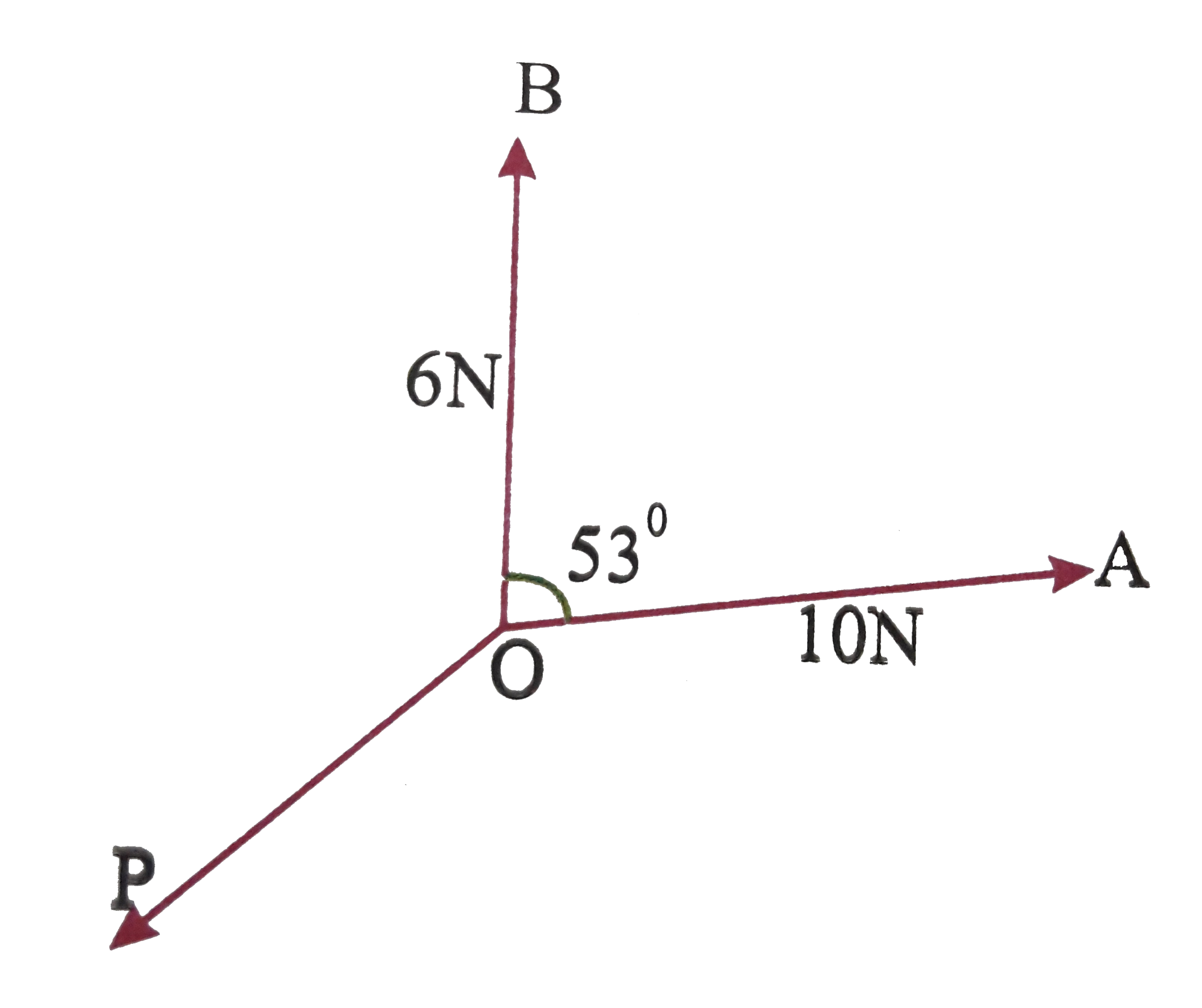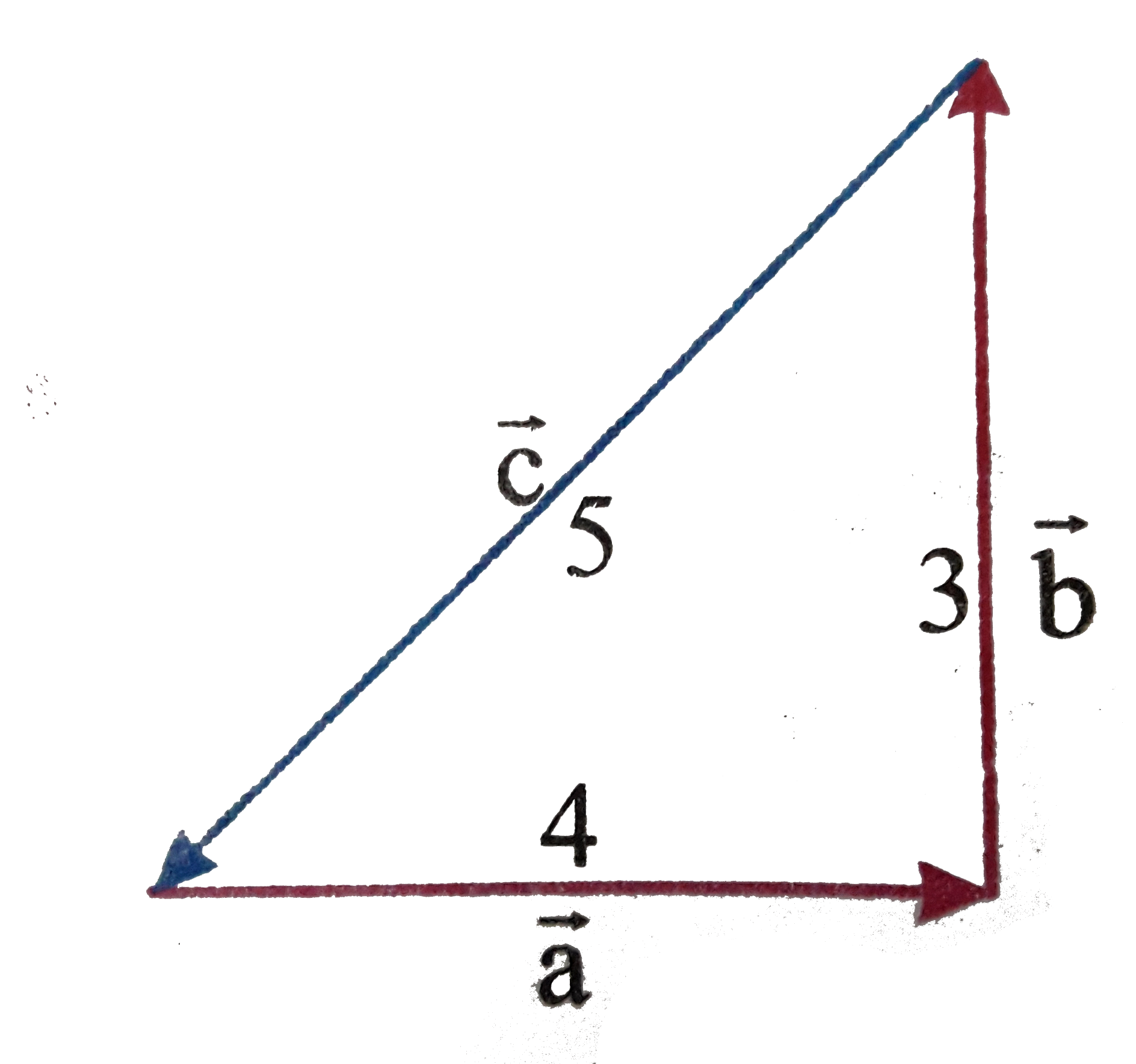Complete Solutions to LEVEL-I (C.W) of chapter VECTORS of Class 11 book with complete answers and questions
| Class 11 | PHYSICS |
| Chapter | VECTORS |
| NARAYANA | LEVEL-I (C.W) |
| Number Of Questions | 27 |
| Academic Year | 2023-24 |
If `vecA=3hati-4hatj` and `hatB=-hati-4hatj`, calculate the direction of `vecA+vecB`
View SolutionTwo vectors are given by `veca=2vecb-vecc=0` then thrid vector `vecc` is
View SolutionThe vector sum of two vectors of magnitudes 10 units and 15 units can never be
View SolutionThe car makes a displacement of 100m towards east and then 200m towards north. Find the magnitude and direction of the resultant.
View SolutionIf a vector has an x-component of -250units and a y-component of 40.0 units, then the magnitude and direction of this vector is
View SolutionA force of 10N is resolved into the perpendiuclar components. If the first component makes `30^(@)` with the force, the magnitudes of the components are
View SolutionIf the system is in equilibrium
`(cos53^(@)=3//5)`, then the value of 'P' is

View SolutionTwo billiard balls are moving on a table and the component velocities along the length and breadth are 5,5 `ms^(-1)` for one ball `2sqrt(3) 2ms^(-1)` for the other ball the angle between the motion of balls is
View SolutionIf `vecA=2hati-3hatj+4hatk`, its components in YZ-plane and ZX-plane are respectively
View SolutionA car weighing 100kg is on a slope that makes and angle `30^(@)` with the horizontal. The component of car's weight parallel to the slope is `(g=10ms^(-2))`
View SolutionA room has dimensions `3mxx4mxx5m`. A fly starting at one corner ends up at the diamertrically opposite corner. The magnitude of the displacement of the fly is
View SolutionIf `vecP=hati+2hatj+6hatk`, its direction cosines are
View SolutionThe value of 'm', if `hati+2hatJ-3hatk` is parallel to `3hati+mhatj-9hatk` is
View SolutionA force `2hati+hatj-hatk` newton acts on a body which is initially at rest.If the velocity of the body at the end of `20seconds` is `4hati+2hatj+2hatk ms^(-1)`, the mass of the body
View SolutionWhen a force vector `vecF=(hati+2hatj+hatk)`N acts on a body and produces a displacement of `vecS=(4hati+hatj+7hatk)` m, then the work done is
View SolutionThe angle between the two vectors `vecA=hati+2hatj-hatk` and `vecBi=-hati+hatj-2hatk` is
View SolutionIn a righht angled triangle the three vectors `veca,vecb` and `vecc` add to zero. Then `veca,vecb` is

View SolutionA vector parallel to the vector `(hati+2hatj)` and having magnitude `3sqrt(5)` units is
View SolutionIf `vec2hati+3hatj` and `vecB=2hatj+3hatk` the component of `vecB` along `vecA` is
View Solutionif the vectors `P = alphahati+alphaj+3hatk` and `Q = alphahati - 2 hatj - hatk` are perpendicular to each other, then the positive value of `alpha` is
View SolutionA force of `2i+3j+2k N` acts on a body for 4 and produces a displacement of `3hati+4hatj+5hatk` m calculate the power?
View SolutionIf `theta` is the angle between unit vectors `vecA` and `vecB`, then `((1-vecA.vecB))/(1+vecA.vecB))` is equal to
View SolutionFind the torque of a force `vecF=3hati+2hatj+hatk` acting at the point `vecr=8hati+2hatj+3hatk` about origin
View SolutionThe area of the triangle whose adjacent sides are represented by the vector `(4hat i + 3 hat j + 4 hat k)` and `5hat i` in sq. units is
View SolutionThe magnitude of scalar and vector products of two vectors are `48sqrt(3)` and 144 respectively. What is the angle between the two vectors?
View SolutionThe diagonals of a parallelogram are `vecA=2hati-3hatj+hatk` and `vecB=-2hati+4hatj-hatk` what is the area of the paralleogram?
View SolutionDeduce the condition for the vectors `2hati + 3hatj - 4hatk and 3hati - alpha hatj + bhatk` to be parallel.
View Solution
LEVEL-I (C.W) questions and complete solutions for chapter VECTORS of NARAYANA PHYSICS (HINGLISH) of Class 11